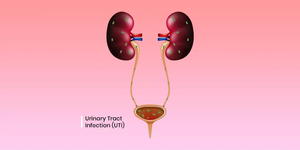New Delhi, April 7 (IANS) More than 50 per cent of people remained Urinary Tract Infection (UTI)-free for up to nine years who received the oral spray-based vaccine ‘MV140’, a new study has said.
According to the study published in the journal European Association of Urology, the MV140 vaccine is a potential alternative to antibiotic treatments.
About 54 per cent of study participants remained UTI-free for nine years after the vaccine, with no notable side effects reported.
“UTIs are the most common bacterial infection. They are experienced by half of all women and one in five men and can be painful and uncomfortable. Recurrent infections, needing short-term antibiotic treatment, develop in between 20 to 30 per cent of cases,” the study mentioned.
This study, conducted by specialists at the UK’s Royal Berkshire Hospital, examined the safety and efficacy of the MV140 vaccine in 89 patients.
“Nine years after first receiving this new UTI vaccine, around half of participants remained infection-free. Overall, this vaccine is safe in the long term and our participants reported having fewer UTIs that were less severe,” said Dr Bob Yang, Consultant Urologist at the Royal Berkshire NHS Foundation Trust, who co-led the study.
MV140 vaccine was administered with two sprays of a pineapple-flavoured suspension under the tongue every day for three months in patients.
Developed by the Spain-based pharmaceutical company Immunotek, MV140 contains four bacterial species in a suspension with water. It is available off-license in 26 countries.
In the research, 48 participants remained entirely infection-free during the nine-year follow-up.
The average infection-free period across the cohort was 54.7 months (four and a half years) — 56.7 months for women and 44.3 months, one year less, for men. 40 per cent of participants reported having repeat doses of the vaccine after one or two years, the study noted.
“This follow-up study reveals encouraging data about the long-term safety and effectiveness of the MV140 vaccine,” said Gernot Bonkat, Professor at the Alta Uro Medical Centre for Urology in Switzerland.
–IANS
shs/svn


Comments are closed.